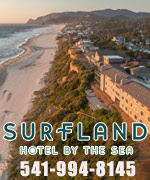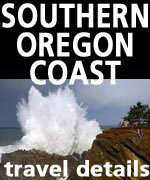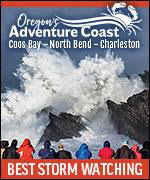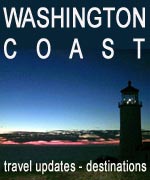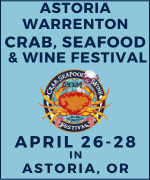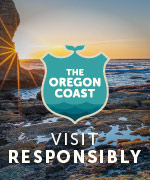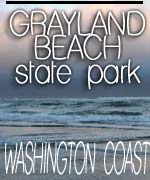Update: Bloated Whale Strands on N. Oregon Coast - Then Disappears
Published 09/18/2016 at 6:41 PM PDT - Published 09/19/2016 at 5:41 PM PDT
By Oregon Coast Beach Connection staff
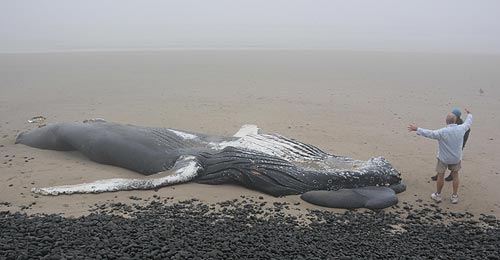
(Manzanita, Oregon) – UPDATE: The Humpback whale disappeared with the tides by Monday morning. No necropsy will take place. One part of the north Oregon coast was the recipient of a particularly smelly castaway this weekend. The bloated corpse of a full grown Humpback whale washed ashore at Falcon Cove Beach (between Manzanita and Arch Cape) Saturday, carrying with it the nasty stench of something that had been dead a long time. (All photos Tiffany Boothe, Seaside Aquarium).
Meanwhile, there have been many humpbacks sighted at the mouth of the Columbia River in recent weeks, although it's not certain if the whale was part of those pods.
The whale will undergo a necropsy on Monday to determine how it died. There was no obvious sign of death on its exterior.
Tiffany Boothe, science expert with the Seaside Aquarium, said aquarium staff will be working closely with Dr. Debbie Duffield of Portland State University, who will perform the necropsy. Both Duffield and the aquarium are part of the Marine Mammal Stranding Network, which responds to incidents like these on the Oregon coast.
Boothe said the whale was definitely an adult about 38 feet long.
UPDATE: Seasie Aquarium's Keith Chandler said no necropsy can happen now that the whale washed away with the tides. It is believed to have been lodged in one of many coves in the Cape Falcon area. He also said there were no plans to get rid of the body since there was no way to bring heavy equipment down on Falcon Cove Beach, which is a small cove typefied by large piles of unstable, polished stones.
“It was first reported to us on Friday afternoon by the Coast Guard,” Boothe said. “They saw it floating a few miles off shore of Arch Cape. By Saturday the whale had washed on shore, on Falcon Cove beach.”
The intense smell alerted many locals to its presence. This is among the stinkiest of whales to come ashore on the coast in recent years, according to many witnesses.
Even worse than the smell, the humpback corpse had been dead so long that it was bloated – and parts of it exploded. Boothe explained the pile of unpleasant stuff you see near it is parts of its organs that had popped out of it, namely its stomach lining.
“The whale was very bloated, and the pressure from its body weight, once it hit the beach, pushed its bloated stomach out of its mouth and then exploded,” Boothe said.
On the less disgusting side of things, the whale had many barnacles living on it. Boothe took many photos of those.
“There are specific species of barnacles that only live on whales,” Boothe said.
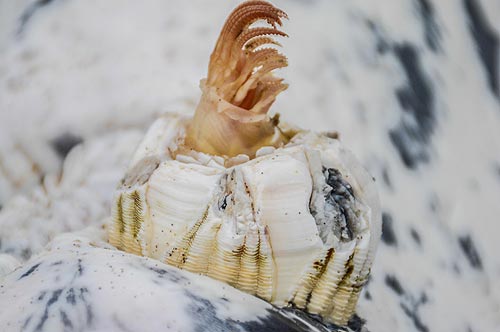
Among them are Coronula diadema, a species closely related to acorn barnacles (the ones you usually see in the intertidal areas, seen above).
“The second is related to another type of barnacle, called a goosneck barnacle, the species which commonly attaches to humpback whales,” Boothe said.
The latter is called Conchoderma auritum.
You can see plenty of live humpbacks now, however.
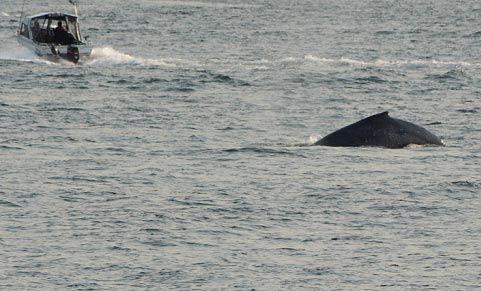
“We are still getting reports of humpbacks in the Columbia River,” Boothe said. “They have been coming in on a regular basis at high tide, feeding on the small bait fish in the river. Last year they were in the river until October 9.” Oregon Coast Hotels in these areas - Where to eat - Maps - Virtual Tours
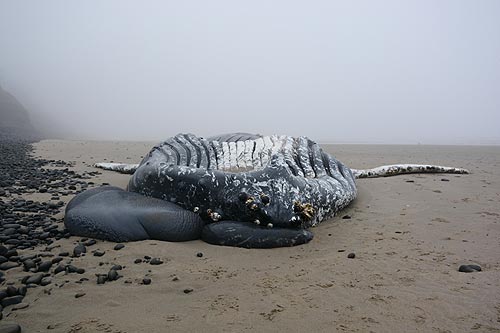
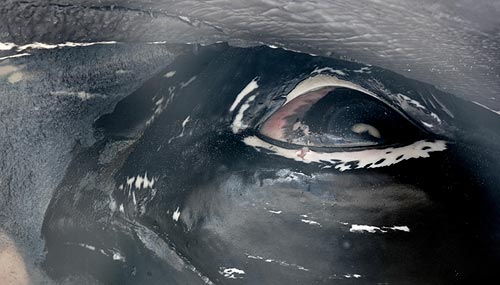
More of Falcon Cove beach below:
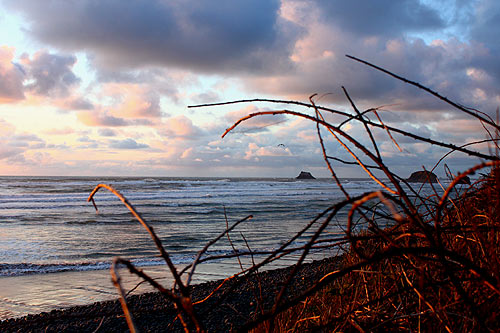
More About Oregon Coast hotels, lodging.....
More About Oregon Coast Restaurants, Dining.....
Cannon Beach Lodging
Nehalem Bay Lodgings
Manzanita Hotels, Lodging
Three Capes Lodging
Pacific City Hotels, Lodging
Lincoln City Lodging
Depoe Bay Lodging
Newport Lodging
Waldport Lodging
Yachats Lodging
Oregon Coast Vacation Rentals
Oregon Coast Lodging Specials
LATEST Related Oregon Coast Articles
Likely just before dawn best hour but peak happens during daylight. Weather
Dark Sky Week is Prime Along Oregon Coast: Where and Where Not to Go
General guide to dark sky viewing from south to north coast. Astronomy
Sizable Price Drop, Deals in Lincoln City During Quiet of April on Central Or...
20 perc off at A1 Vacation Rentals across its roster, including Gleneden Beach. Lincoln City specials
Upcoming S. Oregon Coast Events Include Gem Show, History: Coos Bay, Bandon
May 6 talk at Coos History Museum, Mayfly Fest May 17, Bandon Rock / Gem Show June 7,8
Washington Coast Cleanup on April 19 - Coinciding with Oregon Coast's SOLVE E...
From the Puget Sound to Long Beach, alongside Oregon's cleanup. Washington coast events, Seaside events
Astoria's Riverwalk Gets New Lighting, More N. Oregon Coast Roadwork
Delays coming this summer, but the riverwalk has a new look. Seaside, Cannn Beach
April Gets Even Cheaper Midweek at Depoe Bay, Lincoln City: Oregon Coast Deals
Off-season rates plus more at Keystone Vacation Rentals. Depoe Bay lodging specials, Lincoln City hotel reviews, Newport hotel reviews
Washington Coast Begins Week of Clam Digs, April 12 Through 18
Long Beach, Twin Harbors, Mocrocks and Copalis at different times. Washington coast events
Back to Oregon Coast
Contact Advertise on BeachConnection.net
All Content, unless otherwise attributed, copyright BeachConnection.net Unauthorized use or publication is not permitted







